#house of toulouse
Text
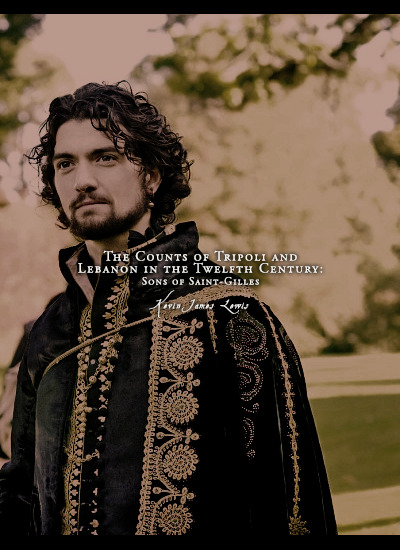
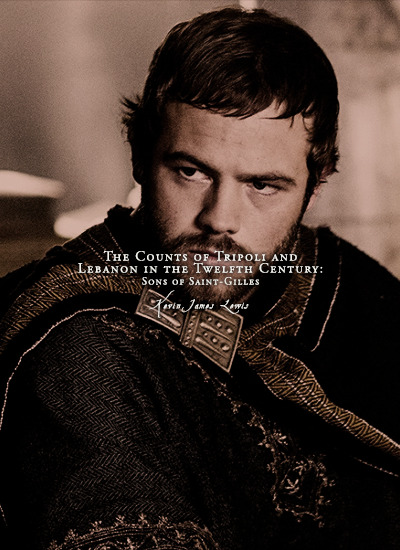

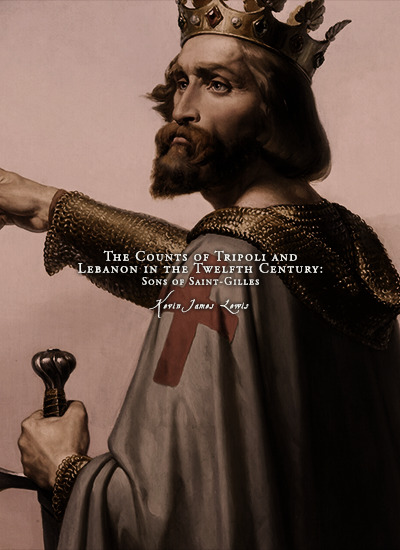


Favorite History Books || The Counts of Tripoli and Lebanon in the Twelfth Century: Sons of Saint-Gilles by Kevin James Lewis ★★★★☆
The Frankish county of Tripoli was not historically important, at least in the traditional sense. Its counts won no particularly great military victories beyond the conquest of the county itself and commissioned no great works of literature. The county’s archives were sacked in an epoch long past and their contents erased from history. Only paint flaking off forgotten church walls, once-mighty fortresses gutted by the fires of modern wars, and crumbling manuscripts in distant libraries stand testament to the fact that the county and its inhabitants existed at all. Yet the study of the county and its rulers is important in that it raises a number of hitherto unasked and unanswered questions regarding the development both of the so-called ‘crusader states’ and of Lebanon and Syria more generally. Though small, the county’s history encapsulates the principal forces that shook and shaped the Latin East as a whole.
The county was not simply the product of European crusaders, but grew amid the verdant valleys of Lebanon, the forbidding heights of the Alawite mountains and the fertile plains that lay between. It was in this Syro-Lebanese context that the counts of Tripoli sought to establish their rule. In many ways, the manifold pressures on the counts were greater than those faced by other Frankish rulers. True, the threat of invasion seems to have been slighter because hostile forces preferred crossing the Jordan into the southern kingdom of Jerusalem, or the Orontes into the northern principality of Antioch, rather than over the mountains that cradled the county. However, the kings of Jerusalem and princes of Antioch did not face the same cultural complexity as in the Lebanon region, which made it all the harder for the counts to negotiate and enforce the terms of their power.
… The present work is arranged chronologically and divided into five chapters. Chapter 1 focuses on two rulers: William Jordan of Cerdanya and Bertrand of Toulouse, rival claimants to what would become the county of Tripoli after the death of the crusader Raymond IV of Saint-Gilles and Toulouse in 1105. Chapters 2 and 3 concern the reigns of Count Pons and his son Raymond II respectively. Chapters 4 and 5 both deal with a single count: Raymond III, whose reign was by far the longest, arguably the most complex and easily the best documented – not to mention most debated. Raymond IV of Saint-Gilles himself, the first self-professed ‘count of Tripoli’, does not receive his own chapter or indeed much special attention at all beyond what is absolutely necessary for the purpose of setting the scene. It has been deemed wise to omit him from the present work since most of his life was spent in the west or else participating in the First Crusade at a time when the very existence of the county of Tripoli had yet to be imagined. As such, the structure of this present work questions Jean Richard’s influential belief that the county of Tripoli was primarily the product of Raymond IV’s ‘action personnelle’. More than one person determined the county’s existence and fate.
#historyedit#litedit#history books#house of toulouse#french history#lebanese history#syrian history#asian history#european history#history#medieval#nanshe's graphics
5 notes
·
View notes
Photo
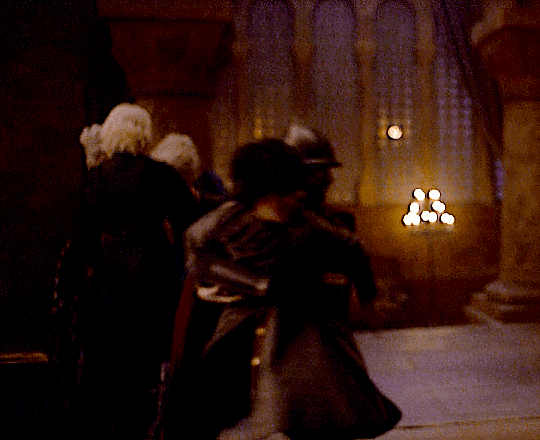

LADY BAELA TARGARYEN, ready to throw hands.
LADY RHAENA TARGARYEN, regrettably saving Aegon’s life.
#hotd#hotdedit#baela targaryen#rhaena targaryen#bethany antonia#phoebe campbell#aegon targaryen#tom glynn carney#house of the dragon#asoiaf#gotedit#beegifs#we'll have to make do with the crumbs...#my best girls are going to own s2 (delusional)#luke looks like toulouse from the aristocats :')#targaryensource
13K notes
·
View notes
Photo



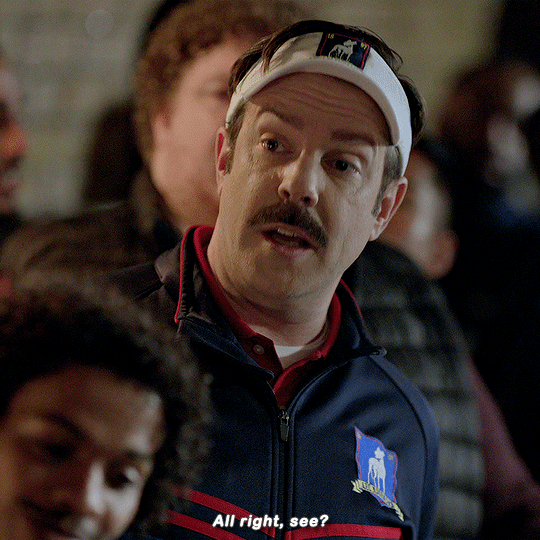

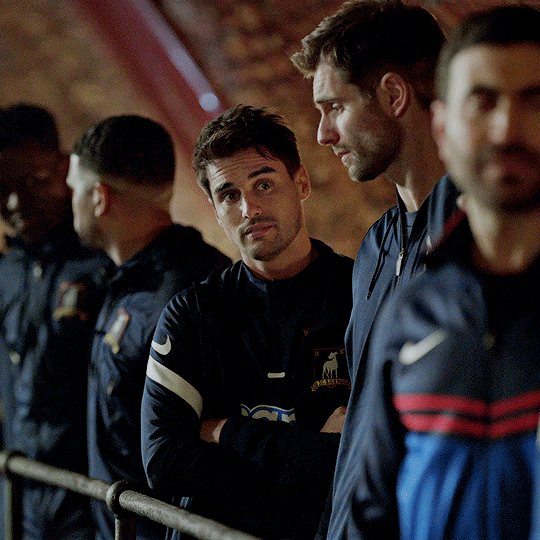
“Merci beaucoup.” | Ted Lasso 3x01
#ted lasso#richard montlaur#tedlassoedit#tedlassogif#ted lasso s3#manigif#this reminds me of phoebe buffay in friends#where she won't accept that her grandma's recipe#is actually Nestle Toll House's#and she keeps defending her grandma's pronunciation#of Nesulé Toulouse#and mocks monica by saying#'you americans always butcher the french language'
260 notes
·
View notes
Text

Les Deux Amies (1895) by Henri de Toulouse-Lautrec
Kind of reminds me of Rhaenyra and Alicent
#Henri de Toulouse-Lautrec#rhaenyra targaryen#rhaenicent#rhaenycent#rhaelicent#alicent hightower#queen alicent#hotd alicent#rhaenyra x alicent#team rhaenicent#hotd#hotd season 1#house of the dragon#19th century#19th century painting#paintings#art#post#wlw
12 notes
·
View notes
Text
would love to move out to a completely different city and region and leave so much of the stress of this place and people behind but every time i've tried to do so i've ended up having a mental breakdown when living on my own or with a roommate that didn't want to do anything together or share anything. gd. it fucking sucks. i can't stay here much longer because i can't breathe but also every time i've tried to leave i've been whacked in the face with my inability to cope on my own.
#any mutual wanna start a new life and share a flat with me in [INSERT A COUPLE OF FRENCH CITIES THAT ARE NOT PARIS OR IN MY CURRENT AREA]#eli talks#toulouse is my preferred option bc housing is much cheaper there and public transport is good and it's far less overwhelming than paris#and also people are. actually nice. and less stress inducing. and there's less noise and overstimulation.#i have money saved up to do so but.... i'd need to rebuild my entire life there which scares me less than doing so alone#bc every time i've tried to do so alone i ended up being unable to leave the house at all#anyhow. will delete later
14 notes
·
View notes
Text
once again thinking about doing erasmus next year..... maybe i will actually commit
#my aunt this weekend basically begged me to leave my house and go on erasmus#i'd already been considering it so...#maybe austria? i know when i tell my parents my dad will push me to go to france. bc 'connection w aragon and all that'#but i kinda wanna put my years learning german to good use yknow. as much as austrian german is different from hochdeutsch n all that#i COULD also go to toulouse... i liked the city when i visited it. but my father knows ppl there. and i want like.#a clean slate where ppl dont know me (i say this as if i was a celebrity and its just that ppl know who my father and uncle are usually)#(so i keep getting compared to them (in their fields of study)) and i just want a break of all these comparisons i guess#xarraire
7 notes
·
View notes
Text
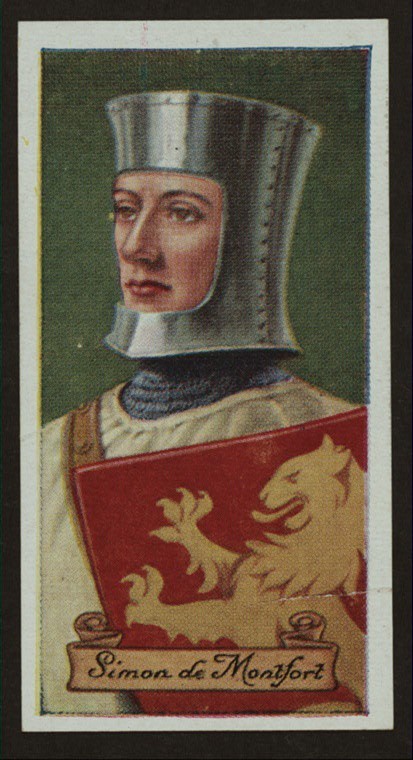
Simon IV de Montfort (c. 1160/1165-1218) was Lord of Montfort-l'Amaury, fifth Count of Leicester, Count of Toulouse, Viscount of Béziers and Viscount of Carcassonne, he was the main protagonist of the Albigensian Crusade.
#royaume de france#maison de montfort#toulouse#crusades#crusader#simon iv de montfort#count of leicester#comte de toulouse#house of montfort#cigarette cards
5 notes
·
View notes
Text
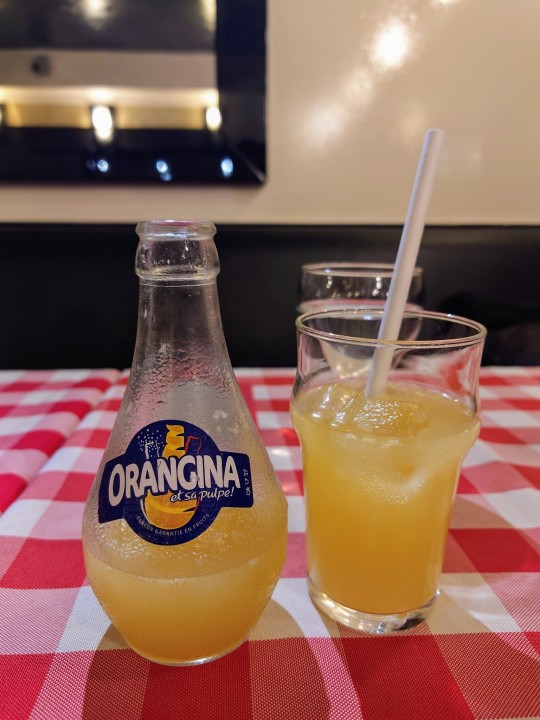


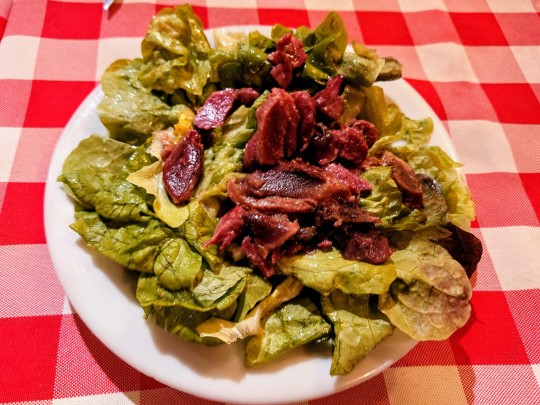
Instead of steak & frites, I ordered gratin dauphinois as a side dish...yummy!!!
1 note
·
View note
Text
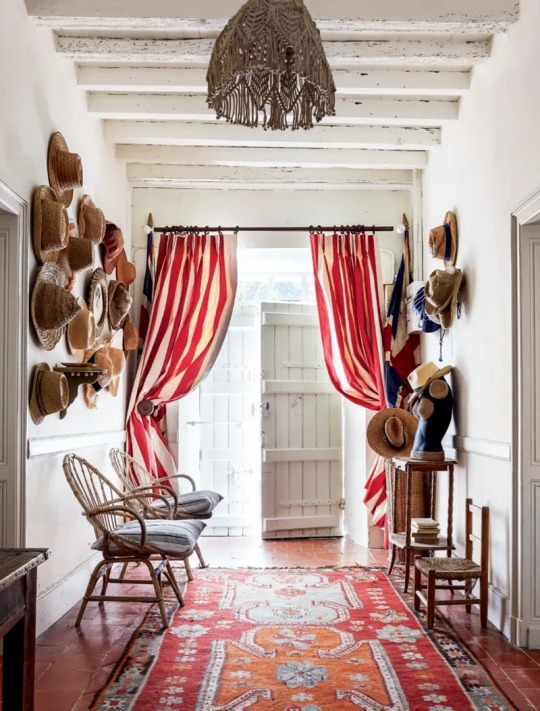
The summer house of former British Vogue fashion editor Lucinda Chambers in Toulouse (France). Via House and Garden UK.
0 notes
Text
Autumn in Toulouse, France (oct. 2022)
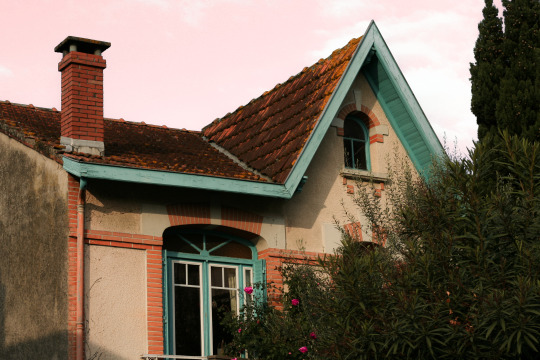
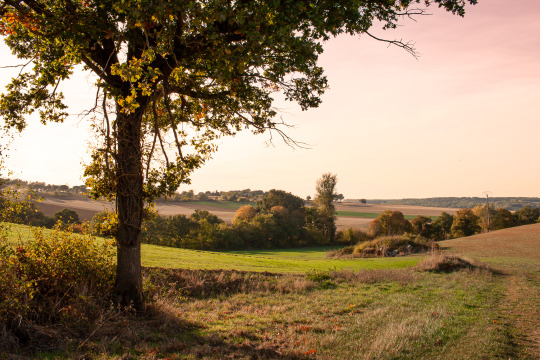
Shot w/ Canon EOS 350D - @candide-autophobe
#photography#France#travel#autumn#sky#leaf#leaves#reflex#Canon#landscape#house#turquoise#vintage#Toulouse#Occitanie#Gers#French#home#warm and cosy#cosyvibes#cosyaesthetic#aesthetic#pink#orange#green#tree#Halloween#Winter#october#vintagecamera
0 notes
Text
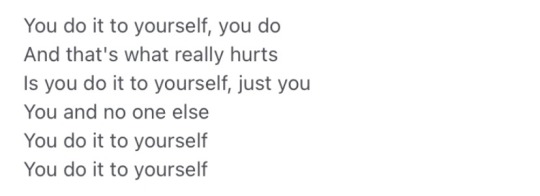

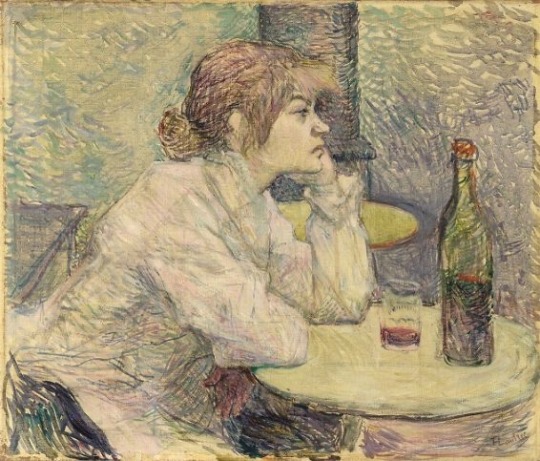

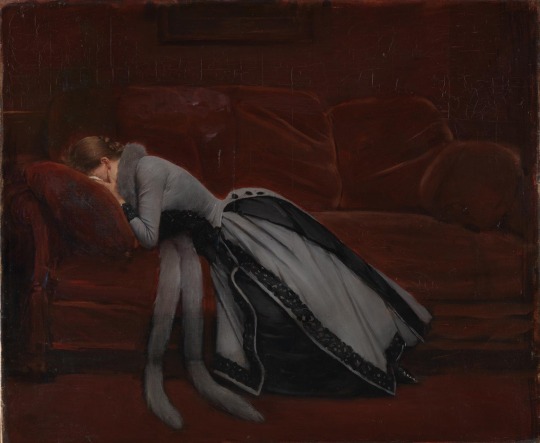


1. Just - Radiohead / 2. A Primer for the Small Weird Loves - Richard Siken / 3. The Hangover - Henri de Toulouse-Lautrec / 4. A House in Nebraska - Ethel Cain / 5. After the Misdeed - Jean Beraud / 6. Abject Permanence - Larissa Pham / 7. You Know I’m No Good - Amy Winehouse
16K notes
·
View notes
Photo

Faidiva of Toulouse (1133 – 1154) was a Countess Consort of Savoy by marriage to Humbert III, Count of Savoy.
She was the daughter of Alfonso Jordan. The wedding took place in 1151.
She died childless.
0 notes
Text
Meet the 𝕿𝖍𝖊𝖆𝖙𝖗𝖊 𝖉𝖊𝖘 𝖁𝖆𝖒𝖕𝖎𝖗𝖊𝖘 🦇
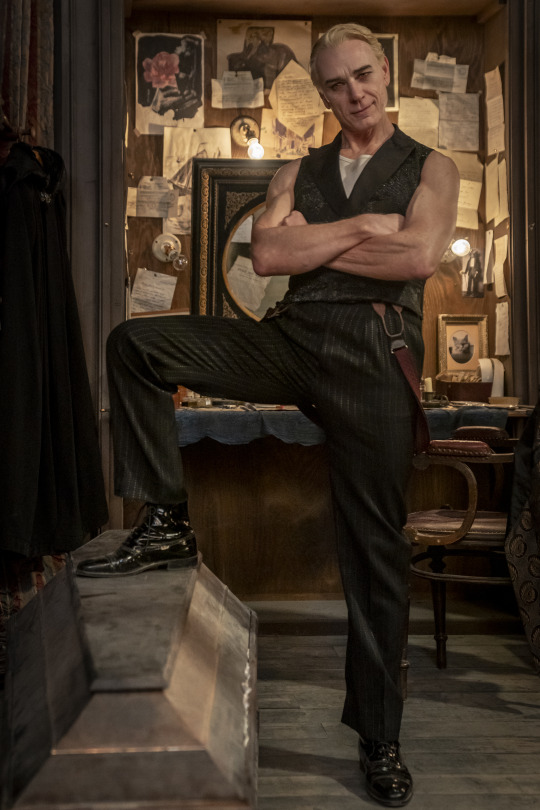
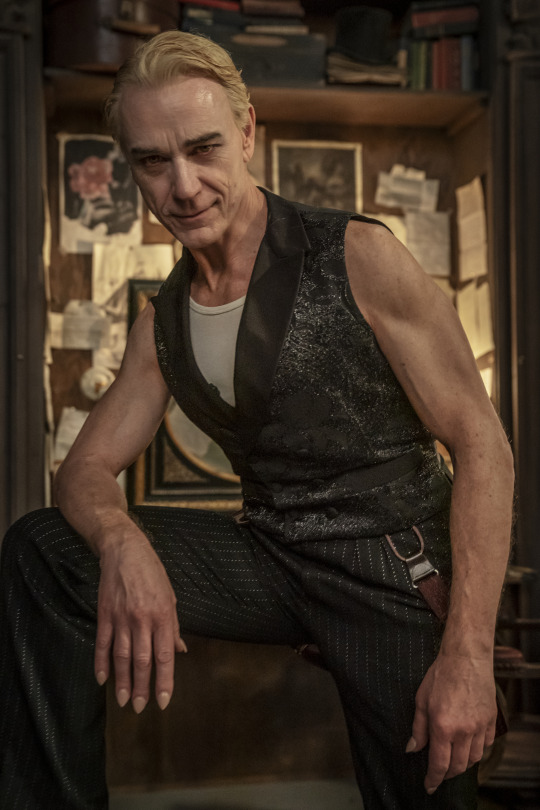
Santiago—played by Ben Daniels
What we know about him: He's the leading man and takes his craft very seriously. He's an Englishman and his human name was Francis Naughton. He used to perform at the York Royal and circa 1921, he was in a touring production of Othello when he was turned by his maker. With less than 25 years in the blood, Santiago is the youngest member of the TdV.
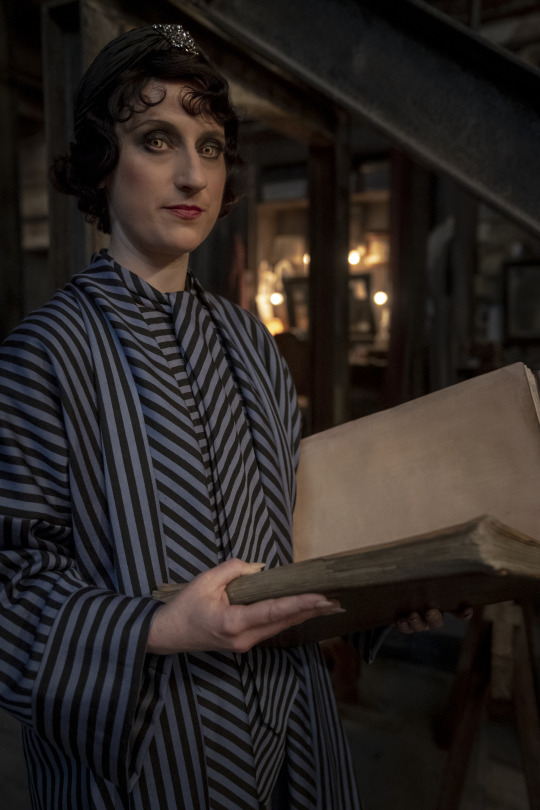
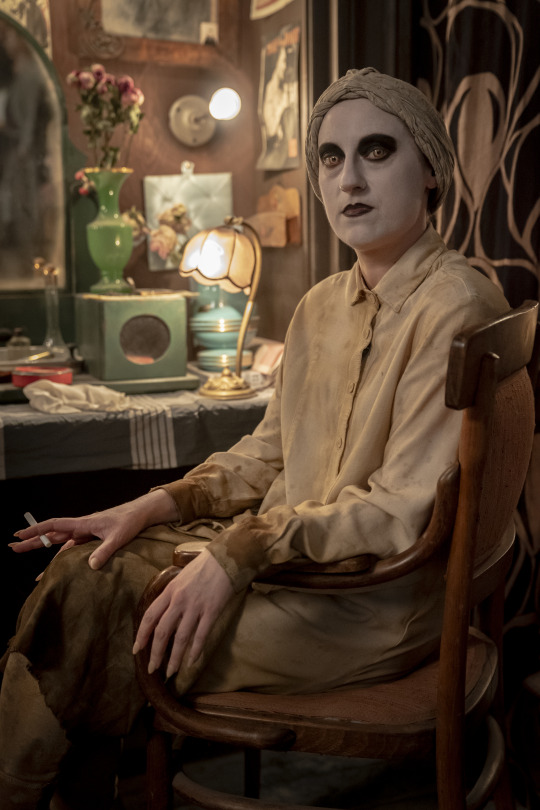
Celeste Moreau — Played by Suzanne Andrade
What we know about her: She is originally from Toulouse and is one of the oldest members. She was initially part of Armand's original coven, the children of Satan, making her at least 250 years old. In the book, Celeste is also described as one of the most powerful at the TdV.
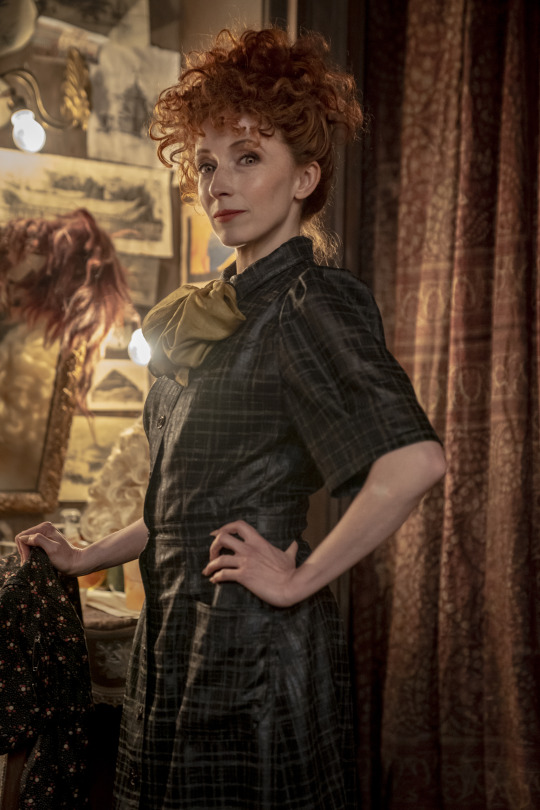
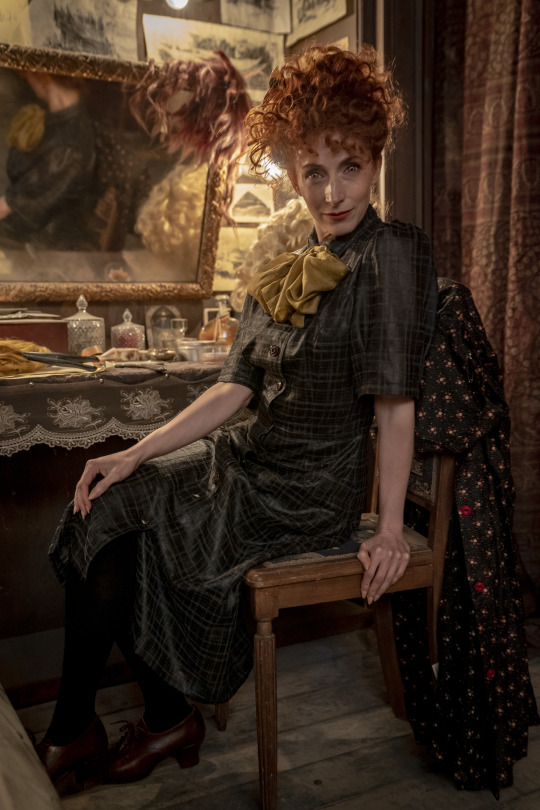
Estelle Arnaud — played by Esme Appleton
What we know about her: Nothing much other than she's susceptible to seasonal allergies. Oh, and she wants to lick Louis which ... relatable! Estelle is another character, along with Celeste who is directly adapted from the book.
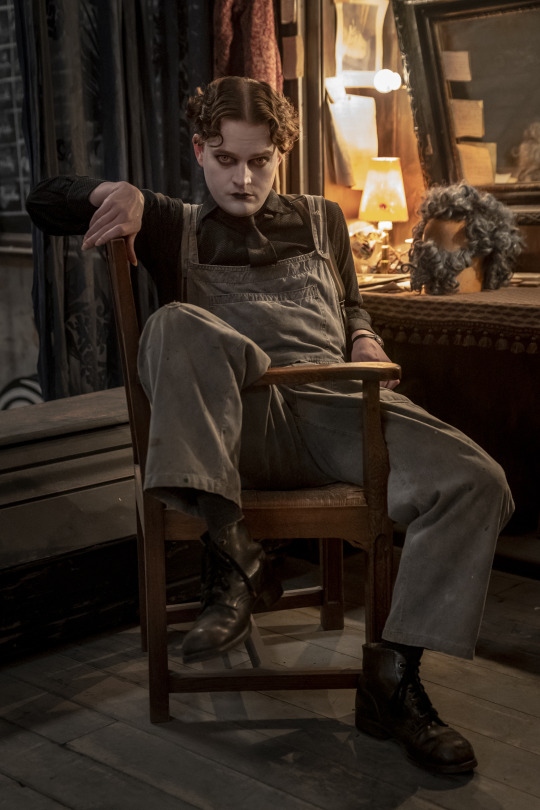
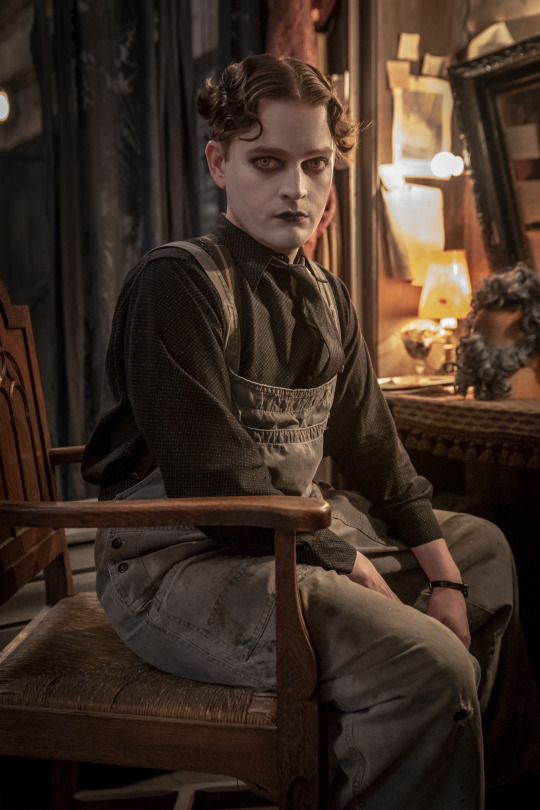
Samuel 'Sam' Barclay — played by Chris Geary
What we know about him: He is the resident playwright of the TdV and is also in charge of ticket sales and 'waste' disposal.
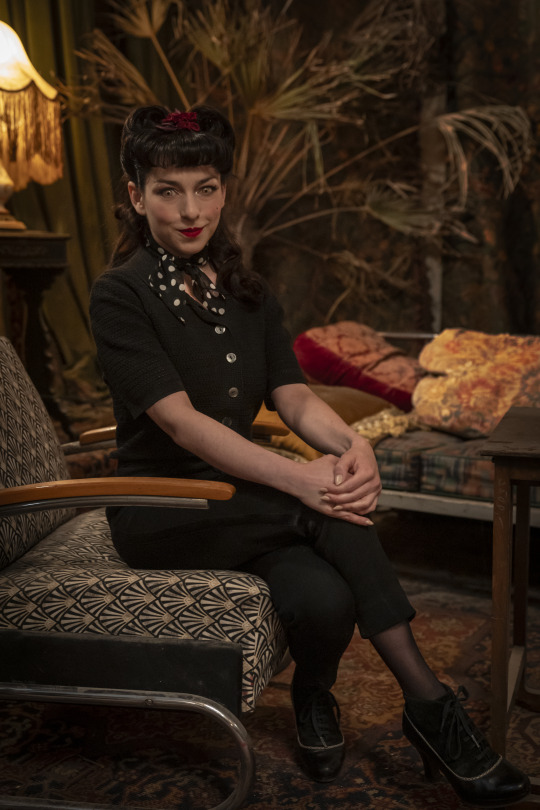
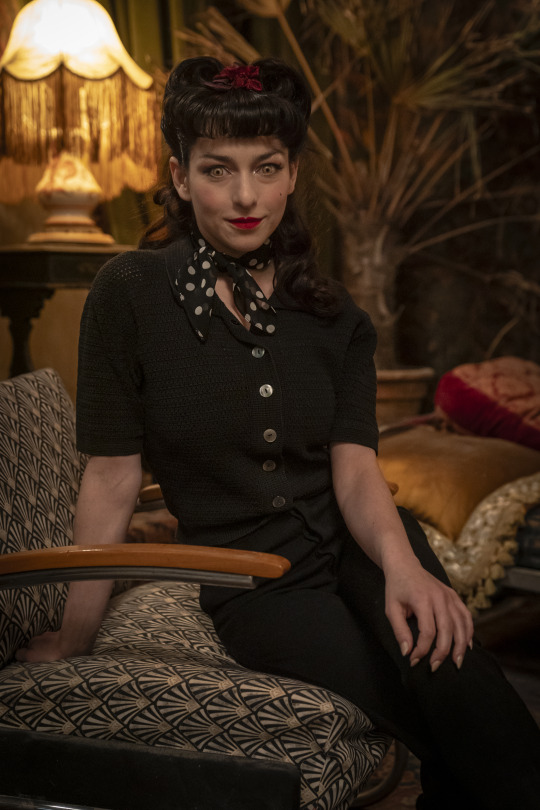
Isabelle Eglee — Played by Genevieve Dunne
What we know about her: She's French and she's in a romantic entanglement with Santiago. She works in the front of house at the theatre.
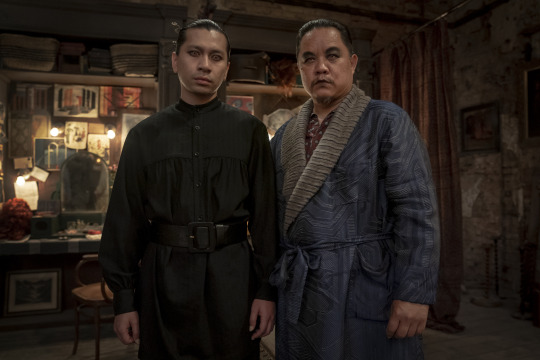
Tuan and Quang Pham — Played by Yung Nguyen and KP Phangnasay
What we know about them: The father and son duo are originally from Vietnam. Armand says they joined to coven on a pre-century tour of 'the colonies', which is a little historical nod to the fact that parts of Vietnam were colonized by France from the late 1880s to 1954, under what was called the French Indochina Union. We stan writers that do their research.
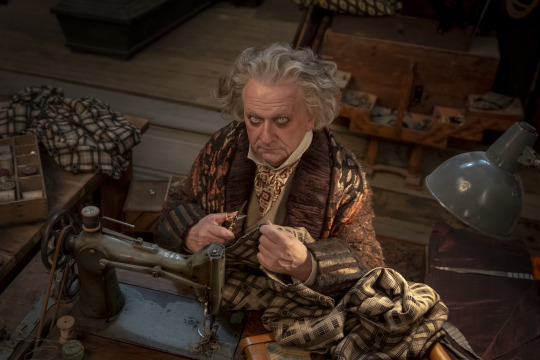
Hans Luchenbaum — Played by Ben Bradshaw
What we know about him: He is the resident tailor at the TdV, in charge of making all the various costumes for the different plays. He's already on my hit list because of what we see him do to Louis in the trailers. I got my eye on you Hans!
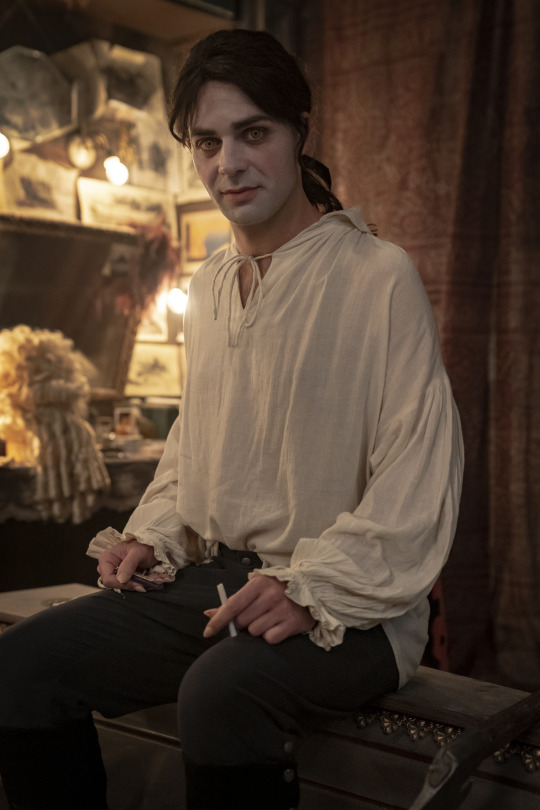
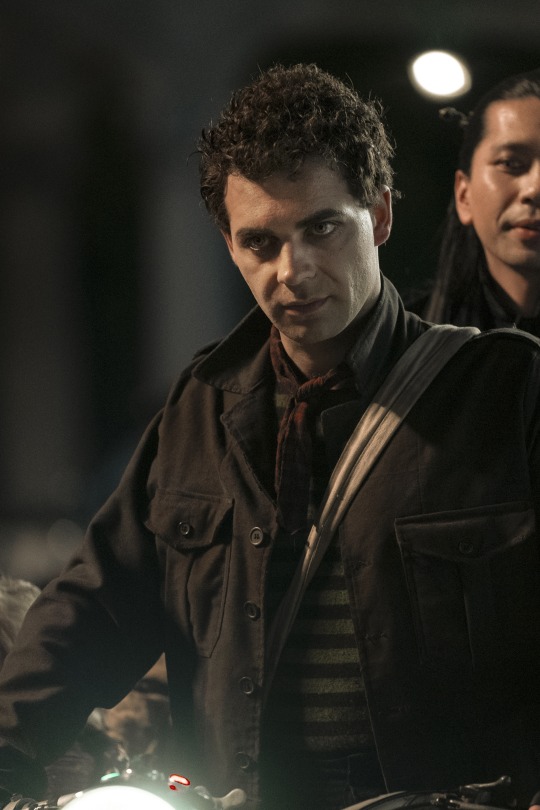
Gustave Chevalier — Played by Jake Cecil
What we know about him: Initially part of the children of Satan, he is now part of the core acting company. You can catch him on stage in the recurring role of the woodcutter.

Merde'em, Basilic and Planche — Played by Matěj Štrunc, Jan Hofman and Jordan Unachukwu
What we know about them: They form the TdV orchestra. Basilic (real name Basile Fontaine) is one of the few surviving members of the children of Satan.
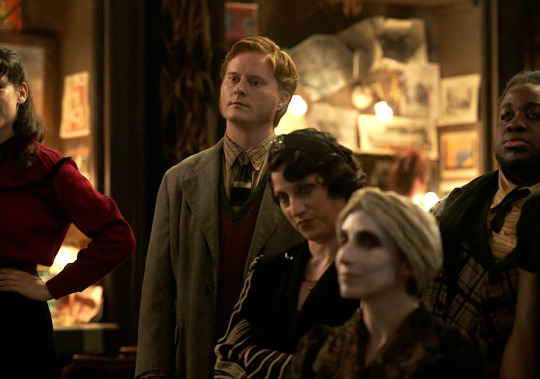
Tomas Romaine — Played by Andrew Van Wilpe
What we know about him: He has very interesting facial hair and he is in charge of stage management and props.
#iwtv season 2#theatre des vampires#iwtv#santiago iwtv#eglee#celeste#estelle#sam barclay#amc iwtv#interview with the vampire
663 notes
·
View notes
Text
Métisse - Boom Boom Bâ
2000
Métisse is an Irish/African soul/electronica band, formed by former Chapter House member Skully, and Aïda Bredou, a singer/choreographer from Côte d'Ivoire. They formed in Toulouse, France. The band's name is the French word for 'a girl or woman of mixed racial heritage', and their music is a mix of African, Celtic, soul and electronic music. Song lyrics often feature a mixture of Dioula, English and French words.
The band achieved initial success with the single "Sousoundé". Their next hit, "Boom Boom Bâ" was the featured title track in Madonna's film The Next Best Thing and was played several times in Bryan Fuller's TV series Dead Like Me. (Fantastic series, highly recommend it!) Their music has also been played in shows like "E.R.", "The Bill", "Therapy", "Laura Biagiotti", "Lila Dit Ca", "Comet", "FA cup", "Man Booker Prize", "Y'a Pas Photo", and more.
"Boom Boom Bâ" received a total of 62,6% yes votes!
youtube
536 notes
·
View notes
Text
To Be Free | CL16

Summary: You had always dreamed that your creativity would take you further than you could ever imagine. You never in your wildest dreams imagine it would take you to Monaco [5.8K, A]
Warnings: Implied Smut, Charles Leclerc being a Red Flag
Note: Hi. I’m not dead, far from it. Thank you all for being so patient as I post my first piece in over a year. I hope you all enjoy it. Thank you to @a-distantdreamer for always being my cheerleader, to @vinvantae for getting my out of the mid-writing funk and @percervall for giving me the balls to post. I love you all.

In order for art to tell a story, it has to be free.
At least, that is what your creative design professor told you the week before your final project was due. It was hard to be creative in a mundane town full of the same people, conversations and routines. Every day you would wake up while your mother told a story about how ‘Jenny at the gym seems to have filled out again!’ Your father would grunt, tell you he would be home late from work, and slip out the door, half-drunk coffee on the table.
Maybe simply being creative was difficult because you were crammed into a squadron of children—three brothers, two sisters. You were never referred to as an individual; it was always ‘She’s one of their kids.’ Your friends at school only became that because of their established relationship with your family. Nothing irritated you more than when a teacher would call you by a sibling's name. You were your own person, or at least, trying to be. It didn’t matter what colour you dyed your hair or how loud the clothes were you wore; your identity was tied to them.
Art was an escape; everybody had insisted you would be the same as everybody else in that town. In the fullness of time, you would fit into a job where you were paid to sit at a desk and answer the same two questions: No, I don’t want a coffee. Yes, I sent that report over. Your story would end traditionally, with a wedding and children.
The thought of being just another figure in suburbia terrified you. It may have been the dream for so many, but it was not yours. Each piece of art you created seemed to come back to the beginning. A frown from your teacher. She had told you once to drive outside of the town, go to the lake behind the Old Manor House, and see how it makes you feel.
Being five miles away from your hometown had created the piece of art that had skyrocketed your grades. You could only wonder what being five thousand miles away from home would feel like. It was the push you needed, the metaphorical map to make you leave.
Overnight, you packed away your life in a suitcase, kissed your mother’s cheek farewell, and set out to be free.
It turns out that being free was a lot more expensive when you didn’t have a degree behind you like the rest of your family.
Something had led to Toulouse, the classified city of art and history. With the money you had saved, you had been able to manage a week in Paris. (It was terribly overrated in your opinion, and the only highlight had been the overpriced pair of ears and waffles at Disneyland, but you couldn’t live like an artist when you couldn’t sell art.)
You have to succumb, moving away from the capital and towards the south, wondering why you didn’t come here in the first place. There was something romantic, peaceful. Neighbours said hello, and something seemed to be happening on every corner, not just middle-aged women doing pilates or another school bake sale. (Bake sales were fine, just not when the one English-speaking cafe you now had a job in seemed to have one every three days.)
There were perks to working there: Tuesday and Sunday off, where you could sit by the Garonne with a set of pastel-half sticks that had been crammed into your suitcase. It was a view you could draw over and over, the deep blue twinkling in the afternoon sun. The contrast of the great greenery on each bank of the river made for a beautiful sight—maybe, in your opinion, a beautiful piece, too. Once or twice the locals had raised their eyebrows at the girl in a fluorescent jacket and mismatched trainers, arched over a sketchbook, but even they had stopped, paused to take in her artworks, and nodded approvingly. One woman had even placed a twenty-euro note at your left-hand side in exchange for one of the copious drawings in your book.
You didn’t understand all of their words, still picking up snatches of French each day (and Duolingo had been a welcome companion on your phone), but their smiles and points between the paper and the view were enough to confirm you of their satisfaction.
On the fourth Tuesday of your arrival, your position had adjusted slightly, setting up shop on the bridge rather than the greenery. You almost drop your pencil into the river when somebody stops behind you, humming in admiration. This piece was different; inspired by Lindsay Fox; softer colours, harsher lines in an almost marble effect.
The man says something in French, but you have to shake your head; it’s way beyond a 34-Day Streak for Duolingo. He smiles, understandingly, changing to speak in English.
“That’s a beautiful piece.” He pauses. “Is it your own style?” His accent is clearly from this area but seems almost more reformed and classier.
“It’s inspired by another artist.” You explain, never bothering to go into further detail; nobody ever understands beyond that. “But it’s my own take. I never get bored of this view.”
“Can I see more?” He asks.
You still find it strange; hearing people around the area speak English isn’t uncommon, but their few words are usually to tell you they like what you’re working on or to order a coffee. There’s a hint of worry in your body language when you pass over the sketchbook, but he’s careful, fingers gently turning the pages, pausing every few moments to take in one piece, gently following his fingers across the sketch lines.
“It’s incredible.” He insists, handing the book back. “Tell me, do you take commissions?”
You have to pause. Commissions had come so few and far between; since being here, you had managed to expand your portfolio. Sometimes, locals would ask you to do a sketch of them or their loved ones, returning later in the day to pick up the piece and marvel at the design. You can’t offer a straightforward answer, so you have to just nod.
For the first time, you look at him properly, too. Dark hair, tousled, and clearly in need of a cut. His eyes are the same colour as the river you draw almost every day, with mismatched dimples on each cheek. He’s beautiful.
“Perfect.” He nods, feeling in the pocket of his loose jeans for a pen. You raise your eyebrows, watching as he holds out his hand, nodding for you to give yours over. Hesitantly, you do, eyes fixed as he scribbles a number down on the back of your palm.
“Do you know how to get to Monaco from here?” He asks casually. You have to pause.
“Is Monaco nearby?” You ask, dumbfounded. It’s worth it, you decide. For the smile on his face that appears.
“A few hours away.” He clarifies. “Can you... do that? I can just show you a photo and come back myself, but... the place. It’s special to me. I’d like to see how you would interpret it in your style.”
A frown appears on his face when you don’t answer immediately.
“I can pay you an advance now.” The man insists. “Eighty? Ninety?”
You have to pause then. Eighty or ninety euros may seem minimal in some precautions, but that could buy your groceries for a week; it was practically a day’s work at the coffee shop for a piece of art.
“That would be perfect.” You smile. “I’m off next Sunday. Would that work for you?” You ask. He’s smiling now, nodding in confirmation.
“It would work for me.” He clarifies. “Text me over your bank details." He nods, watching as I reach for my phone, typing in his phone number. “I’ll send you the advance and we can arrange a meeting time.” He finishes, looking down to his watch; his footsteps draw away from you, giving a final nod, but then holds out his hand.
“Charles.” The man introduces himself with his name. You don’t hesitate in taking his hand, shaking it back, and giving your own name to him. “Nice jacket, by the way.” He adds.
You raise your eyebrows, looking at the deep brown leather jacket around your shoulders. It oddly complimented your black and white plaid dress and deep green boots, or so you thought. A grin appears on your face when you pull off the garment, taking in the prancing horse on the back.
“It's a Ferrari.” You explain. “Pretty unique, but people don’t seem to realise it. Found it in a second-hand store.”
“Honestly.” Charles grins. “Some people wouldn’t recognise a Ferrari if it came and shouted in their face.”
Sometimes you need to clarify details before agreeing to something with a complete stranger.
To begin, he hadn’t told you that he meant Monte Carlo; you were being asked to commission in the most expensive city in one of the most expensive countries in the world. You had taken a train out of Toulouse on Saturday evening after your shift, bustling through the crowded town of people on their way out to enjoy the weekend. Suitcase in hand, you had curled up in the corner of a carriage, watching as the ocean and scenery passed you by, practically falling into bed when you arrived at the last-minute hostal bed you had booked, bypassing the sounds of the noisy couple above you.
Secondly, ninety turned out to be an incredibly misleading number.
You had let out the oddest mix between a scream and a gasp when you checked your bank later on that evening, seeing that ninety-thousand euros had been sent over under C.LECLERC. It not only gave you a heart attack, knowing that money could keep you afloat for a lot longer than it would take saving from working in the cafe, but it also gave you a name.
Typing the name into your Google search later that evening had been like discovering a state secret. Charles Leclerc, Formula One driver for Scuderia Ferrari. His face was plastered over your home screen, adorned in red fireproofs, atop a podium, in a car with aerodynamics you couldn’t even begin to understand.
Your stomach had twisted. A truly evil part of yourself had the idea of disappearing and never returning, ninety thousand euros richer. That money could lead to your freedom. But in your heart, you knew what you were. An artist, trying to path their way, and how would it look if you had disappeared after taking money from such a well-known being?
The train from Nice to Monte-Carlo is only forty minutes; before you know it, you’re stepping onto the train platform, mismatched converses in red and black complimenting the cherry red clip pinning back your hair. You had shoved the scrap of paper you had scribbled the meeting point on in your dungaree pocket, pulling it out and shuffling to the side of the platform. It’s only a short walk, but it’s made longer by the constant pauses, taking in the sight of the city. Extravagant, classy, old buildings piling up either side of the winding roads, peeks of an overcrowded harbour, boats that were worth more than you would ever make in your life on view. It was like walking around a movie scene; there was no other way to describe it.
The main character of the city is sitting at the bridge on the address, hands in his pockets, lips turning into a grin when he sees your figure, identical from the day back in Toulouse. Immediately, Charles has left his spot, smiling at your presence.
“You made it." He grins, starting to speak before your tone interrupts him.
“And you didn’t tell me who you were!” You exclaim, your moral compass falling over you. “Charles, I can’t accept that much.”
“I’m sorry?” He pauses. “I thought we discussed; that was just a pre-”
“It’s a pre-nothing!” You shake your head. “I’m not a proper artist—I can’t charge that much!”
“Really?” Charles pauses, nonchalantly. “You seem like a...proper artist to me. Your work is incredible.”
He doesn't give you time to argue further, offering his arm out and motioning to follow him. You can’t help but raise an eyebrow, falling into step alongside him. It suddenly makes sense; why is he keeping his head lower than when you originally met, keeping the sunglasses across his eyes? You want to try and make conversation; you want to feel less awkward than walking alongside a literal billionaire.
You don’t need to; he makes the conversation for you.
“Why Toulouse?” He asks, slowing down his pace, wanting to hear your answer. “Not many artists stay around the South of France for too long.”
“Paris was overrated.” You shrug, giving a completely honest answer. It doesn't hit you until you’ve said it that you had practically insulted the country where you were currently residing and your hand comes over your mouth in realization. “Oh my god, you’re not from Paris, are you?”
Charles is laughing. Something about your expressions made him grin. “You searched me up, but didn’t think to check where I was from?”
“I didn’t get to it.” You quip back. “I was kind of distracted by the fact you’re a multi-race winner in the biggest Motorsport in the world.”
“And you still didn’t recognise me on the bridge.” He pauses. “I’m from Monaco. I’m not French. Just…a lot of drivers live here.”
“A Tax-Haven, right?” Your personality comes through at long last, any sense of awkwardness washing away. “You set up camp here, but you’re not here most of the year, so... more money.” You can tell from the way Charles stays silent you’re banging on, correct in your guess.
“Monaco is my home, too. I am actually from here.”
Our pace slows as we reach a hill. The road is more prominent there, curving in a hairpin. Everything in its surroundings seems to complement it: the high buildings, the shrubbery, the bright red and white stripes outlining the road. Charles has frozen in his spot, and you can tell that this is the spot he was talking about. His commission. You can practically see the memories from track in his vision, almost as if he’s taking in every turn he’s ever made, every time he’s walked along this road since a toddler holding onto his mother's skirts.
“This is it.” You narrate for him. “This is your spot.”
He turns to you, eyes lifted, bright. “What do you think?” He asks, your own eyes still focused on the place.
“It’s beautiful.” You say it with sincerity. It is the way the entirety of Monaco, of its racing pedigree, seems to be captured in one shot. It almost feels too surreal; it almost feels as if you wouldn’t be able to do justice to this place with a mere canvas. “What kind of style?”
“That’s completely up to you.” Charles pauses. “Your creative style. How do you see this place? Because I think you see it the same way that I do, yes?”
“Yes.”
A lot can change in two weeks.
Your bedsit in Toulouse had been the biggest change; in the centre of the room was a large canvas, a curved road in the middle of the page clearly outlined. The sofa is littered with various paints, chalk, and pencils—a collage of rich reds, deep greens, and charcoal black.
The cafe hadn’t been forgotten; you had taken a sabbatical, insisting you needed two weeks—just two weeks—then you would be back to making overpowered coffee and refolding a newspaper four times in twenty minutes to place back on the front table.
Charles stays in contact; it’s a little difficult, within the midst of time zone differences and media releases. Sometimes it’s a text, and other times it's a video sent of where he is, insisting it would be good inspiration for your next portfolio piece. You don’t know how many times you have to explain it’s different; you need to feel it. Understand it further than a picture on the screen of your run-down phone. Sometimes it’s difficult to deny the flutter in your stomach when you receive one of these messages.
You get a FaceTime call on the Saturday night of his current race weekend in Barcelona. The weather is cloudy and there’s already been engine issues on his teammates home turf; Charles was frowning when he originally joined the call. Clearly a weak qualifying was looming in his head.
“Hey.” You’re starting the conversation, a paintbrush tucked behind your ear, a colourful shirt misbuttoned. “Is everything alright?”
“I just wanted to see how it was going.” Charles explains. “I mean, the painting—and well, you obviously. Did you find a chocolate pastry in the end this morning? I know you were craving one.”
A smile falls to your lips; in the midst of a race weekend with no luck, no speed, and no chance of getting into Q3, he has still found time to check in, lying back in the stupidly expensive sheets of his hotel bed, stubble and hair both overgrown, the buttons of his Ferrari Polo discarded, golden chest peeking outwards.
“It’s…going.” You shrug, “I want to do it justice—to find the colours and style that just...” One hand moves in a dramatic gesture. Charles nods understandingly as you continue your rant. “I’ve gone back there three times since the original visit, you know?”
A smirk appears on the driver’s face. “And you didn’t bother to let me know?”
“You were in Canada. You’re also my client; I want to make sure it’s what I promised.” You insist, walking back over to the array of shade pallets on your couch, fingers reaching down to select your third red chalk of the afternoon. Charles is content to watch your eyes focus, the nudge of the camera indicating you were rotating through your next tool.
“Hey.” His tone causes you to turn your attention back to the camera. “Do you want to see something cool?”
“I always want to see something cool.” You grin, watching as Charles sits himself up from his bed, the sound of his bare feet padding against the tiles of his Mediterranean hotel room. There’s telltale signs of his presence in the background: the phone charger by the mirror, the watch he had worn the first time you met him in Toulouse, a bundle of friendship bracelets, lovingly made by the Tifosi.
None of it, however, compares to when he lifts his phone, skin glowing in the soft sun, and flips the camera around to portray his balcony view.
The sight of Barcelona in the deep sun from Charles’ phone makes your heart stop. The sky a deep blue you crayoned as a child, roads twisting into an abstract stroke of tar and coloured dots of various sporting cars. There’s bright greens, specks of colour from the greenery. In the distance, you can still hear the ocean and the lapping of the waves.
You’ve always been clear that before you commit to creating art, you want to see the place and feel the place first. There’s almost certainty in your mind that the rule can be relaxed for the view you’re currently experiencing.
“It’s beautiful.” You finally whisper, after a full five minutes of transfixing through the phone screen.
“I’ll take you here one day.” Charles insists. “Paints and all.”
He doesn't miss the way your eyes flicker to the side, the pink that decorates your cheeks and matches the ribbon tying back your fringe whilst you work.
Monte-Carlo on the Saturday evening before the Monaco Grand Prix is an experience like no other.
Charles had pleaded to send a car to collect you from France, despite the fact the journey would have been faster by train—a whole two hours faster. In the end, the compromise is a ticket that would keep you safe and well-looked after in the First Class carriage. While you reclined in the leather seat, a high-end soda on your table, a canvas wrapped in brown paper, secured with nimble string, was nestled at your side.
You were certain you had spent an entire hour just…staring when it was completed. In your hearts, it was certainly your most intricate and perfect piece. A part of you could have spent the rest of eternity just staring at the landscape, the rest of your bedsit out of focus while you were transported back to that road in Monaco. It helps the mental stimulation that had overpowered you for the weeks; how you had spent an evening comparing your books on Sylvia Hikins’ minute but powerful detail and the reflection work of Dmity Oleyn.
It’s not a huge walk to Charles’ apartment from the train station; what makes it longer is the amount of racing fans, clad in bright red, papaya orange, or deep blue. A cacophony of colours lines the streets of Monte-Carlo, attention diverted to the paddock nestled alongside the arbor. Your heart rate increases as the crowds become thicker, desperately trying to keep your packaged painting away from nudges and knocks.
It’s only when you reach the edge of the city that the crowds loosen a little and there’s a chance for you to slide out your phone, thumb-tapping in the address on Google Maps, a reminder of your first encounter with Charles almost three weeks ago.
There was in fact no need for this in the end. You’re not sure which event takes place first: your map location updating to announce you were less than a one-minute walk from your destination or the shout from above you. Instinctively, your head turns upwards, feeling the long braid of hair fall down your back and locating the source of the noise as a smile beams from your mouth.
There’s two figures on the balcony, both leaning over the glass barriers. One is shorter, a mass of dark hair and thick-rimmed glasses, waving wildly to gain your attention. The other is blessed with brown hair and instantly turns from the balcony when he sees your figure.
A minute later, the door to the complex in front of you is opening, your client grinning as he steps out from the foyer, feet covered in just socks as he hops down the path to you. Maybe it’s the soft sunset, or the way his oversized tee shirt makes the muscles peeking from his arms look even more defined. You’re certain Charles Leclerc could look beautiful by any means necessary.
He doesn't give you time to process these thoughts any further as he wraps an arm around your shoulder, clearly in high spirits from his home race weekend.
“Is that for me?” He grins, eyes widening at the parcel as you shake your head.
“No.” You hum. “I just tend to carry around a giant square wherever I go.” You grin, looking down to your own outfit, then to his own. “Are you sure I’m in the right city? I feel very overdressed compared to the people in sports shirts.”
“You look perfect.” He insists, his arm falling from your shoulder to your bicep. “Come on. Come up and meet everybody.”
“I’m sorry?” You falter. “You want me to come and meet-“
“Please?” His hand falls lower, fingers tracing around your wrist as he slowly connects your palms together. “I want to introduce them to you. Put a name to a face.”
The insistence is good, and you refuse to move your hand away when he entwines your fingers together, praying that you aren’t going to drop the painting or your jaw from the unexpected intimacy.
The smile only grows on this face when you nod, letting him slip your threaded backpack from your shoulder, guiding you into the foyer.
The painting reveal goes…incredibly well.
Four hours ago, you had been led up to his apartment, introduced as ‘The next Van Gogh.’ He gives you a few moments to introduce yourself, noting to you that this wasn’t the entity of his group; you would meet some more faces tomorrow, should they be celebrating. When somebody had opened their mouth to argue that if you were really that good, you should have been nicknamed after Leonardo DaVinchi. Charles only grins when he gives his response.
“But DaVinchi was never a landscape painter like my girl, was he?”
You’re lucky enough to get to watch the reaction of several Monegasques seeing one of the most iconic portraits of their country come to life. There’s applause, cheers, and for the first time in your life, you feel like an artist. Not just somebody who places pencil and pastel to paper, hoping for the best. Your eyes can’t even focus on the work; the colours and strokes entwine into one. No, they fall to Charles; blinking back the tears, he's... overcome. You saw his vision. You got his understanding. You understood him.
He doesn't hold back from walking over to you, arms wrapping and squeezing you oh-so-tightly, applauding and thanking you over and over for your work.
In the remaining three hours and thirty-eight minutes since the reveal, there had been celebrations, soft drinks, and music. Your attention has been completely stolen by a golden dachshund—Leo, somebody tells you—who licks your ankle and insists on being lifted. Do you spend the rest of the gathering with the puppy in your arms? Quite possibly.
When the group dies down, Leo is placed in his sofa spot, chewing on one of his toys, occupied whilst you take the opportunity to look over the lights of the city—lights of buildings twinkling along the shoreline, a clear sky enveloped in black, how the deep blue of the ocean in the harbour is illuminated by the streetlamps.
You’re so engrossed that you jolt when you feel a hand on your back, before a string of apologies and a soft laugh fall from Charles’ lips. A comfortable silence settles for a moment before he speaks again, looking back over the skyline.
“I used to look out over the harbour when I was young.” He explains. “After I had a bad race or lost on something... I knew my home would always welcome me back.”
“It is quite beautiful.” You hum, shuffling from the open-aired area and back into the lounge. Your art piece now hangs in pride on the wall, next to a silver trophy. His first win, one of his friends had told you when they had caught you staring.
Both of you stare at the trophy and then the art piece, and the smile crawls back onto Charles’ face. Before he can fall into an endless spiral of gratitude again, you have to speak.
“Did you always want to be a racing driver?” You ask. Charles nods.
“It’s a part of me, no? Like I believe that being an artist is a part of you.” His expression softens as his vision finally meets the side of your cheek. “I want to know the other parts of you, too.”
It’s enough to make you turn your head from the view, and for the first time all evening, you see Charles. The same one you had seen at the hairpin turn all those weeks ago. Slowly, his hand comes back out, gently circling your wrist. You swear the entirety of Europe could feel your heartbeat, most certainly the man in front of you.
“I want to know about these paintings you love.” He murmurs. “About the necklace you always wear and why your eyes sparkle when you see open water.” His forehead skims across your own, noses bumping, lips dangerously close as his hand moves from your wrist, dancing up your arm, holding your chin.
“Will you come to the race tomorrow?” He asks softly.
Words seem almost incomprehensible until you softly breathe out. “Yes.”
That’s all it takes; the butterflies in your stomach swarm as he surges forward, finally pressing his lips to yours. The world seems almost right; everything finally makes sense; you don’t need to be free to create art; you just need to be found. Found by a man who understood art on the banks of France. Who understood the tri-colour shirts you wore on a phone call? Who understood you?
You had never felt more found then when your lips pressed back into his and he softly guided you back into his bedroom.
Being found washed over you for the next fifteen hours.
You had rolled out of the Navy Blue bed sheets that morning after a deep slumber, wrapped up against Charles’ bare body. Any detailing of his room had been completely bypassed when you had sauntered through his apartment, the top he had been wearing the previous night covering your frame.
Part of you is disappointed to see his golden torso now covered by a scarlet shirt as he bends down to give Leo his water bowl, humming in contentment as his puppy excitedly laps at the water. The happiness only grows further when he reaches back up, arms opening to envelope you into his chest, a hand threading into the back of your head as he tucks you into his neck.
“I didn’t expect you to be up so soon.” He murmurs. “Did I wake you?”
“Leo did.” You grin. “But I could never be mad at that face.” You insist, feeling Charles’ chest vibrate with laughter. Eventually, the hands on your hips have to pull away, a soft kiss being pressed to your hairline.
“Joris is going to be here in a couple of hours to bring you and Leo to the track.” He hums. “I left your Paddock Pass next on top of the mantelpiece. Otherwise the raptor would have chewed it.” He grins, his smile dropping when he sees you look out of the window, towards the track layout. “I’ll… You’re still coming?” He asks curiously.
“I am.” You smile. “I said I would.”
True to your word, you do so. True to his word, Joris appears at Charles’ apartment door one hour and a bit later. He greets you pleasantly enough, asking how you found Monaco and congratulating you again on your art piece. When he goes to collect Leo into his arms, the puppy backs away, sniffing at your legs as he practically demands to nestle back into your arms. You can’t help but laugh, letting him nuzzle into your chest.
Joris says nothing, but when he leads you to his car and you’re reunited with the group of friends who would be attending the race in the Paddock, he makes sure that he takes Leo so that you can enjoy the conversation with the remaining people in the group.
The conversation flows freely and happily, only interrupted when the puppy begins to bark, pulling on his lead towards a figure in front of the group. A beautiful, slender figure dressed in soft pink, dark hair glossy and neat, a smile worth a million stars as she steps in time with Charles.
Joris laughs as he lets go of the lead, and Leo goes bouncing over to the figure, clearly recognising her. When she stands back up, the puppy in her grasp, and steps closer to Charles, pressing a soft kiss to his lips, your stomach immediately drops.
Charles’ own eyes flicker to you for a split second. He’ll never erase the look that was washed over your face when the girl nudges him softly, telling the group that her Charles must have slept well the previous night, which he never usually does before a race day.
Part of you—a strong, passionate part of you as deep and as powerful as the paints in your works—wants to scream out and tell this woman that her Charles had been wrapped up in your hot touch less than twenty-something hours ago. That he had whispered in your ear as his hips rolled against yours, that he had told you soft stories of a promised future together as you had found rest in his arms.
In such a short amount of time, you had allowed yourself to be chained, to be latched into a rope of feeling from the beautiful man who had approached you in a city that was almost perfect. If it had been perfect, the man would have walked to you, squeezed your hand, and gently kissed you again. Instead, his hand finds the woman’s hip, walking with the rest of the group whilst you falter behind, barely giving a second glance, slipping away from the gaggle of conversation, unseen.
As Charles climbs into his car that afternoon, you slide the keys to your bedsit into a small envelope, leaving a wad of cash and an apology note for leaving your contract so early.
In order for art to tell its story, it has to be free.
Charles returns to Toulouse on Monday morning, low on the P8 result he had received the afternoon before and the way his girlfriend had kissed his cheek and told him not to worry, that his luck would change. All whilst she whispered praises into his lips, caught in a kiss at the back of some overpriced club, his mind is overpowered by the thoughts of you, as bright as the landscapes in your sketchbook.
He has to explain. He longs to pull you into his arms and tell you he meant what he said. When he arrives, he looks everywhere. In every art shop, every park, every museum. He remembers you mentioning a part-time job in a cafe. On his ninth attempt, he freezes when he steps through the entrance, the chime of a bell hitting the front foot in mid-ring when he sees a landscape displayed proudly on the wall.
He doesn't need to ask. Feet come over to the counter as he looks over. Two girls. Neither of them are you. One of them turns around and smiles nicely enough, asking what the man would like to order.
“The woman who painted that.” He nods to the picture of the Garrone. “Where did she go?” It’s clear the girl behind the counter knows something and bites down on her lip to stay silent. It only takes one more pleading look from Charles before the words spill from her lips.
“She’s gone. Left the city on Sunday.” She pauses. “She’s gone to be free. I don’t think she’ll be back."
Charles feels his heart crack as harshly as the damages in Manet sculpture on your phone screen wallpaper. Your story insisted on you being free. After all, you had been the art. The piece where no matter what he saw for the rest of his existence, he would never be able to forget.
#F1#Formula 1#F1 x Reader#Charles Leclerc#CL16#Charles Leclerc x Reader#Charles Leclerc Imagine#Charles Leclerc One Shot#Reader Insert#Reader x Charles#Formula 1 Imagine#F1 Imagine#Ferrari#Red Bull#Aston Martin#Fanfiction#Charles Leclerc x You#F1 x y/n#F1 Fandom#Charles Leclerc Fluff#Mercedes
280 notes
·
View notes
Text
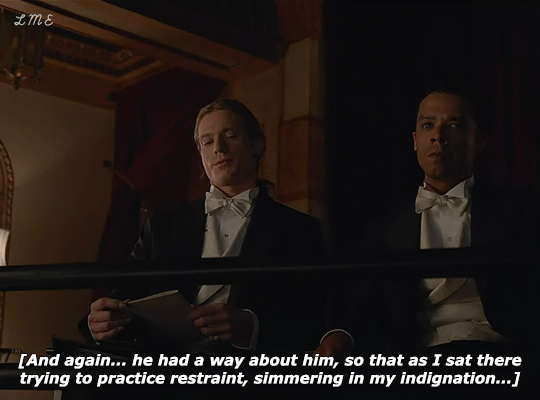
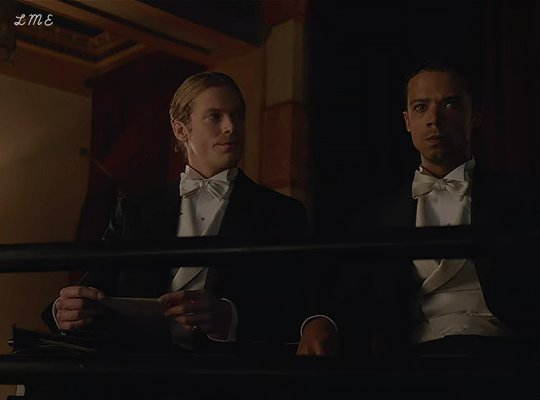
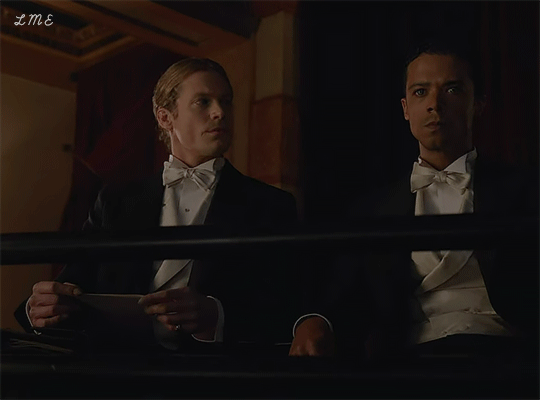
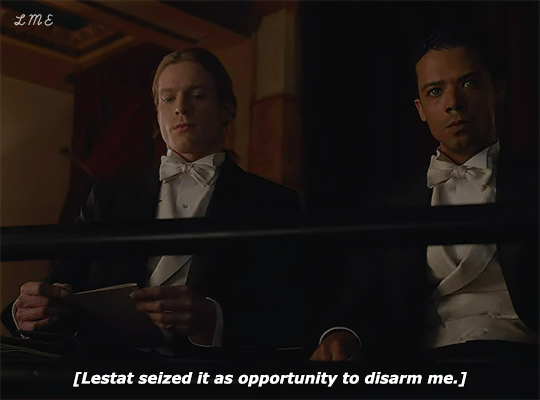
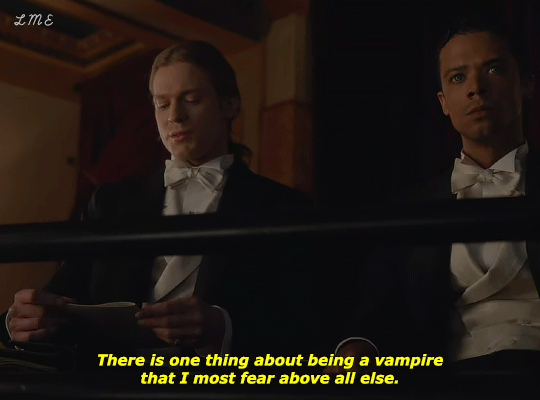
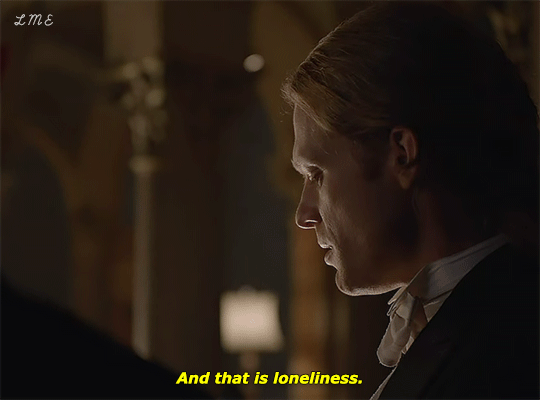
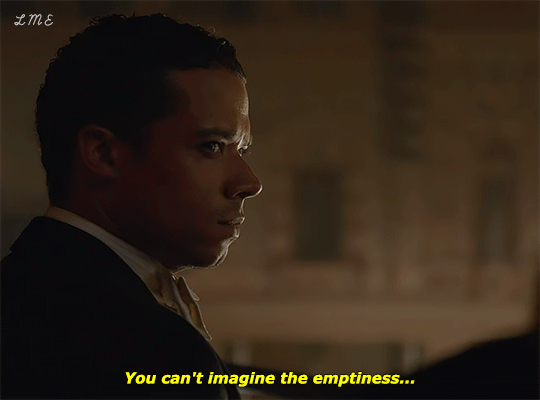
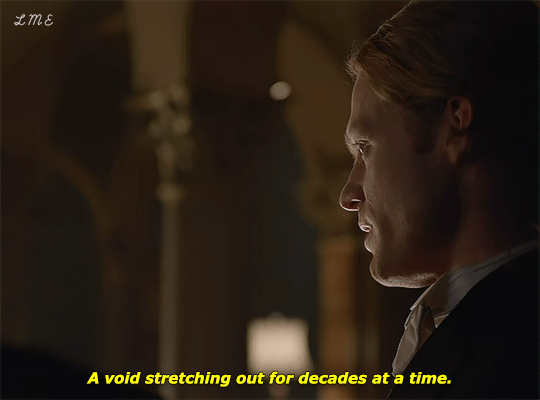
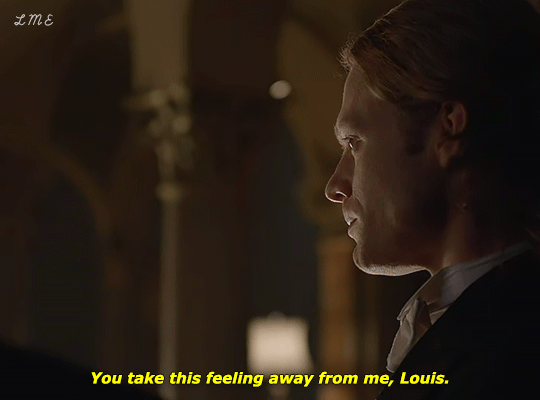
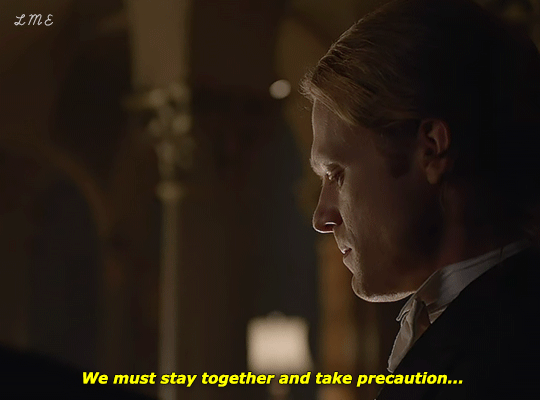
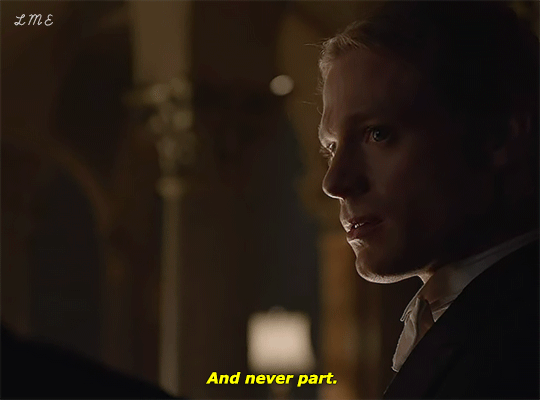
The status I enjoyed in Storyville did not extend itself to the operators and patrons of the French Opera House on Bourbon and Toulouse. We did what we always did to avoid conflicts there. I performed as his valet, walked a pace behind him, took his overcoat once we found our seats, remained standing in the back of the box until the lights went down, and only joined next to him once the overture had begun.
#Interview with the Vampire#amc iwtv#iwtvedit#Louis de Pointe du Lac#Lestat de Lioncourt#loustat#OTP: I didn't realize it was a gift#filmtvdaily#filmtvsource#filmtvtoday#userbbelcher#cinemapix#userdosa#userveronika#userentertainments#tvarchive#smallscreensource#usertelevision#tvgifs#Rachel's edit tag#lestat's face journey. insert what if we all ****** ourselves meme#head in hands. lestat said this bc he was trying to apologize. he saw how upset louis was and this was his way of saying sorry.#and it's also why he took the tenor's bad performance so personally. lestat feels like he already fucked up this date#so the tenor's performance is just ruining the night even more#and then louis understandably viewing this as lestat being manipulative in retrospect....... im so sick I can't do this
164 notes
·
View notes